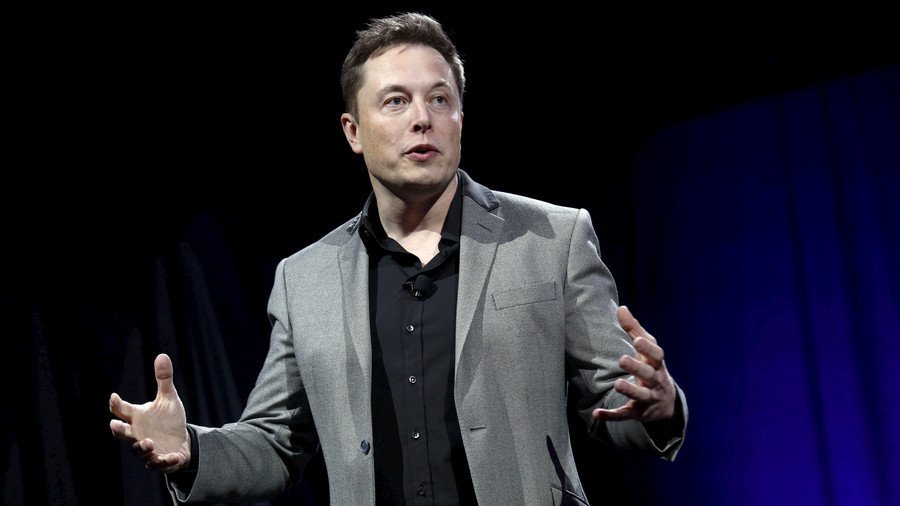Govt agency sues Musk for fraud, wants him barred from CEO positions

The US Securities and Exchange Commission has accused Tesla CEO Elon Musk of conning investors through his "misleading" posts on Twitter, in which he claimed that he had secured funding for taking his company private.
The Securities and Exchange Commission (SEC) filed a lawsuit against the embattled tech entrepreneur on Thursday, asking the court to order Musk to repay any "ill-gotten gains he received as a result" of the series of tweets, in which he claimed that he had secured the funding for Tesla going private at $420 per share. Musk alleged then that the only issue in the way was that "it's contingent on a shareholder vote."
Shareholders could either to sell at 420 or hold shares & go private
— Elon Musk (@elonmusk) August 7, 2018
The tweet sent Tesla's stock surging by more than 10 percent. However, several weeks after the nothing-short-of-scandalous announcement, Musk backed down, saying that he agreed with the existing shareholders to keep the company public.
The turnaround had Tesla's investors fuming, prompting one of Wall Street's short sellers to file a class-action lawsuit, alleging that the business mogul "artificially manipulated the price of securities ... in order to 'burn' the company's short-sellers."
READ MORE: Elon Musk sued for ‘trying to burn’ short-sellers with Tesla-go-private tweets
Two parallel probes, a civil one by SEC and a criminal one by the US Justice Department, were launched over the controversial tweets.
READ MORE: Tesla faces Justice Department probe over ‘funding secured’ tweets by CEO Elon Musk
The complaint lodged by the SEC in the US District Court in New York alleges that Musk's tweets about taking the company private "were false and misleading because they lacked any basis in fact."
Musk knew or was reckless in not knowing that each of these statements were false and/or misleading because he did not have an adequate basis in fact for his assertions.
The commission further alleged that Musk "had never discussed a going-private transaction at $420 per share with any potential funding source," and had "done nothing" to investigate whether existing Tesla investors would stay with the company as it went private.
In an attempt to explain his tweet, Musk wrote in a blog post on August 13 that he was under the full impression that he had secured the necessary funds in a meeting with the representative of the Saudi Arabian sovereign wealth fund.
"I left the July 31st meeting with no question that a deal with the Saudi sovereign fund could be closed, and that it was just a matter of getting the process moving," Musk wrote at the time.
The lawsuit, however, alleges that the meeting "lacked discussion of even the most fundamental terms of a proposed going-private transaction."
The lawsuit also shed light on the bizarre way Musk chose to name the price at $420 per share. The Tesla CEO explained in an email to the board that he calculated the sum based on a 20 percent premium on that day's closing share price, which would have amounted to $419. But then "rounded the price up to $420," because "he had recently learned about the number's significance in marijuana culture" and because he believed his girlfriend "would find it funny."
Lmfao why $420 doe? 😂 $TSLA#Tesla#ElonMuskpic.twitter.com/zis8b7Scti
— TheStockBard (@CaptainWeee) August 8, 2018
In light of Musk's violation of the securities law, the commission requested Musk be "prohibited from acting as an officer or director" of any public company, reimburse whatever he earned with the alleged con, and pay civil penalties.
Musk has denounced the lawsuit as "unjustified action," dismissing the allegations and saying that he has "always taken action in the best interests of the truth, transparence and investors."
Subscribe to RT newsletter to get stories the mainstream media won’t tell you.














